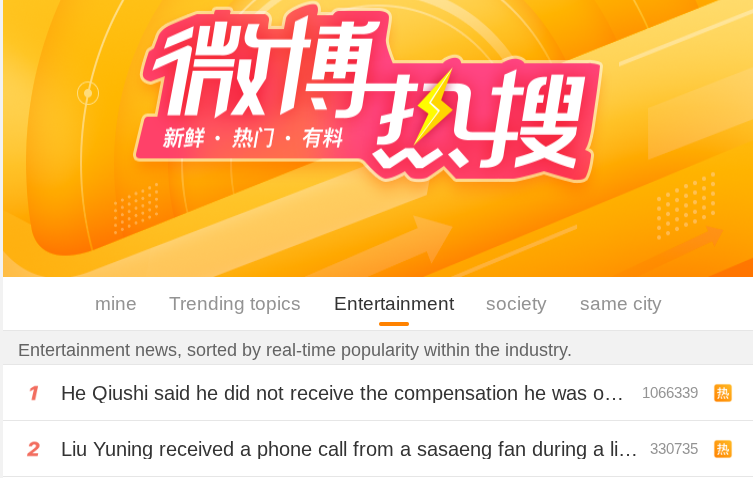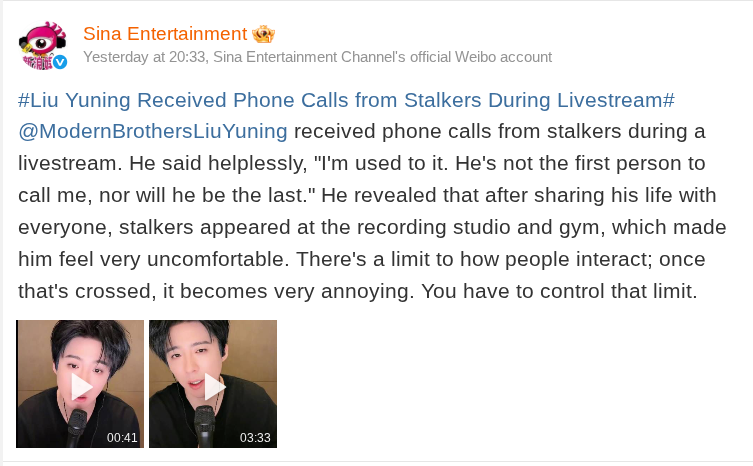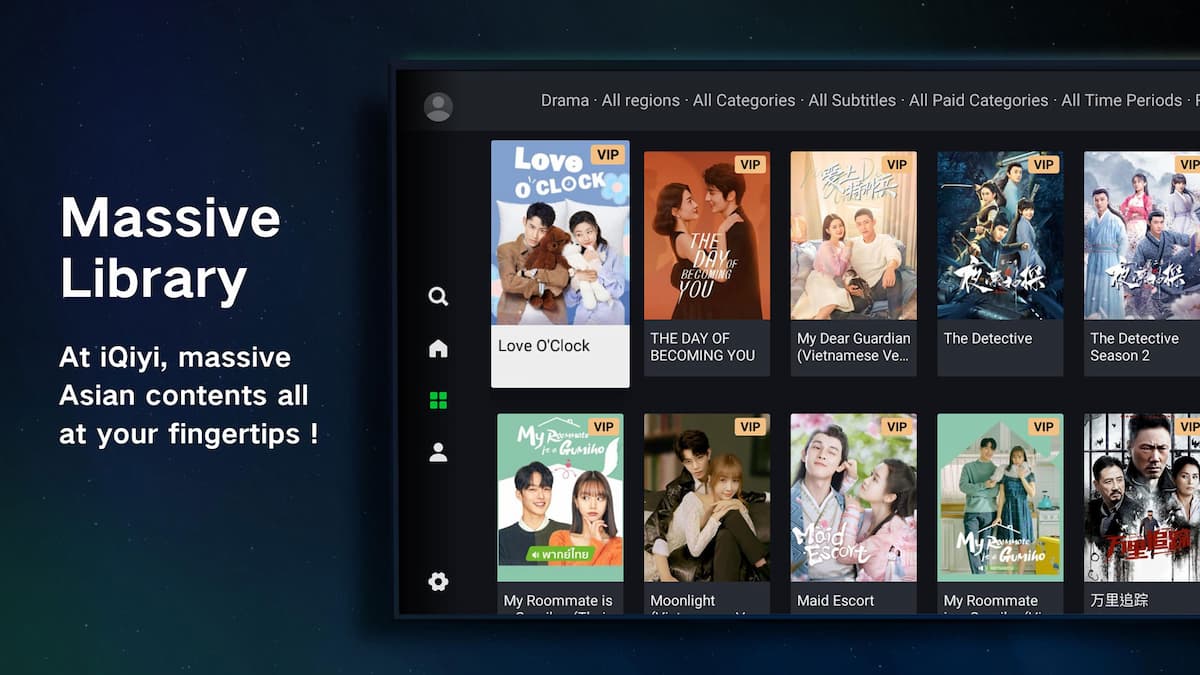LayarHijau – Issues involving sasaengs (obsessive fans who stalk celebrities) resurfaced after the latest incident involving Liu Yuning on Monday, November 24. While livestreaming, his phone suddenly received a call from an unknown number. He immediately rejected the call and stressed, “Picking up will only encourage that bad habit. He has no qualification to speak to me.” According to reports from Chinese platforms, such disruptions have occurred repeatedly. The caller deliberately targets him whenever he is live, to the point where Liu stopped using his official identity-linked phone number and switched to unofficial communication services because he was harassed too often.

Furthermore, Sina Entertainment reported that Liu appeared resigned yet clearly irritated by the repeated disturbances. “I’m used to it. He’s not the first person to call me, and won’t be the last,” he said. He also revealed that after he began sharing more of his daily activities, the stalker even appeared in his recording studio and gym. “There are boundaries in human interactions. When someone crosses that line, it feels extremely uncomfortable,” he added.

Weibo users quickly reacted, strongly condemning the sasaeng’s behavior:
“This stalker is unbelievably arrogant! Calling him right during a live stream.”
“Fans should support their idols, not terrorize them.”
“He’s too popular, there will always be weird people like that.”
“Loving someone starts with respecting their boundaries.”
Unfortunately, stalker-related incidents are not rare within China’s entertainment industry. Several other male actors have faced similar disturbances throughout the year.
Actor Zhang Linghe experienced one of the most extreme cases when the hotel he was staying at had its location leaked online. Sasaengs gathered around the building, with some even sneaking into service areas and waiting overnight. For safety reasons, Zhang’s team was forced to conduct an emergency evacuation and moved him to five different hotels in one night. The situation led to the cancellation of a scheduled fan meeting the next day due to high risks.
Actor Ren Jialun also faced harassment from stalkers who followed him at airports and repeatedly attempted to approach him aggressively. His studio strongly condemned the behavior and emphasized that the actor’s safety was the top priority. They urged that such stalking must stop immediately as it could easily lead to serious incidents.
Another case involved actor Ao Ruipeng, who confronted stalkers directly on a public road. In a video that went viral on Weibo, Ao was seen stepping out of his vehicle and standing in front of the stalkers’ car, which had been following him at a dangerous distance. He asked them to stop endangering others before his studio later announced the incident had been reported to the police. The studio also pointed out that this was not an isolated event, as Ao had previously been followed near his residence, at VIP airport zones, and backstage at various events.
These cases show that stalking is not limited to one or two celebrities but has become a broader issue embedded in modern entertainment ecosystems. Because of that, comparing the situation with other countries offers insight into how global industries attempt to handle similar threats.
Different countries apply different approaches to combating stalkers and obsessive fans. South Korea enforces blacklist systems for sasaengs, strict concert regulations, and constant professional security details for idols. Japan emphasizes celebrity privacy protection through firm regulations, including rules allowing staff to immediately remove fans who cross boundaries during events.
Meanwhile, the entertainment industry in North America and Europe relies more on legal measures such as restraining orders, upgraded residential security, and cooperation with law enforcement. Data protection policies like GDPR also limit the spread of personal information about celebrities. Despite these varying approaches, global trends show a consistent pattern: violations of celebrity privacy happen everywhere, and the entertainment industry is tightening security systems to protect artists from stalking-related risks.





















